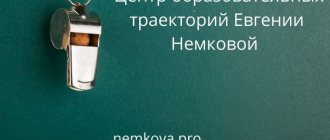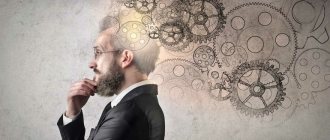Fear of going crazy
- one of the common fears (phobias) among urban residents of our time.
Of all the cases of such anxious experiences, the majority turn out to be just a peculiar reaction of the psyche to stress and overload, that is, there is no psychiatric illness behind this; proper rest and getting rid of the stress factor removes such fear.
But, although rare, such fear of “going crazy and getting a mental disorder” can really be a signal or symptom of some kind of mental disorder (usually in the initial stage of development of the disease).
What to do if you or your loved one were visited by such fear?
We advise you not to tempt fate and not wait to see what this will all lead to. Contact a psychotherapist or psychiatrist. One consultation with a psychotherapist or psychiatrist is enough to clarify whether this is overwork or, nevertheless, there are mental problems and therapeutic help will be required.
In both cases, the specialist will tell you what needs to be done: if it is overwork and a reaction to stress, then how to properly rest and recuperate; if it is a symptom of a disorder, then what kind of help is needed (psychotherapy or medication, whether it is necessary to be examined, etc.)
Does psychotherapy help with VSD?
A psychotherapist for VSD affects the psycho-emotional sphere using various methods. In most cases, after treatment for neuroses and psychological disorders associated with VSD, complete recovery occurs. During sessions, psychotherapists teach techniques to curb the manifestation of derealization and agoraphobia.
Psychotherapists use structured techniques to help relieve the patient from the manifestation of these disorders. During sessions, the patient can trust the specialist and talk about his experiences. If you need advice from a psychotherapist or other clinic specialists on the treatment and diagnosis of VSD and its manifestations, make an appointment by calling the Yusupov Hospital.
Misconceptions that accompany fear (the most common ones are given)
- You won't find good doctors;
- Go to a fortune teller, sorcerer, psychic and similar “specialists”;
- It’s better not to share this fear with anyone, otherwise they will “turn away from me”
- If I get “crazed,” it will be passed on to my children and affect my family and environment;
- It is better to endure and not take any measures so as not to make things worse;
- Most people are crazy, and in general “the world has gone crazy.”
All of the above are indeed misconceptions that “wrap up on their own,” increasing mental suffering and delaying a trip to a specialist.
If a mental disorder or behavioral disorder is suspected, there are examination methods that allow the doctor to objectively confirm and clarify the conclusion about the presence (or absence) of the disorder: pathopsychological, neuropsychological studies, tests (including genetic, epigenetic), electroencephalography, etc.
- We do not register
- We will not “heal” you
- Our doctors are not crazy who diagnose everyone
If you do not consult a doctor, or go to “non-traditional” sorcerers, bioenergy therapists, clairvoyants, psychics, then this will only deepen and prolong the disturbing experiences, since the necessary help will not be provided.
The fear of going crazy and developing a mental disorder is not inherited.
OCD fear of going crazy
Daria
March 11, 2021
Good afternoon, I have already written here about my fear of schizophrenia and psychosis. I'm just desperate. Well, I have this fear in my head so much that I already catch myself thinking that I’m trying so hard to convince myself and my brain that I’m already crazy. I have control over words/actions/sounds/thoughts/feelings 24/7. Here’s the case today: my husband and I are riding on the subway on an escalator, he is driving ahead of me. I see that he has something in a bag in the side pocket of his backpack. I'm starting to wonder what this is. At first I thought: “Well, I don’t know what this is and to hell with it,” but then a really obsessive thought appeared: “How come, I have to find out what it is.” In the end, I asked my husband, and he replied that it was a black face mask in a bag. I calmed down literally for a minute. Then I became so scared that it was definitely a sign that I was going crazy, since I couldn’t cope with my control and desire to check. As a result, I have anxiety every day, from morning to evening, and it goes away a little in the evening. The anxiety is so strong that everything floats before your eyes, your head is spinning, it feels like it will literally explode soon from anxiety and thoughts. When I try to sleep during the day, I fail, because when I fall asleep, any sound (the cat opened the door, walked in, etc.) causes terrible fear in me and I give up this flexible activity (I mean daytime sleep). I can't let go of control. And it all started, as I wrote earlier, with the coronavirus. I used to have neurosis, panic attacks, I successfully treated it several years ago and have already forgotten. But in November, after Covid, something terrible began to happen in my head. I didn't have ok before. And this is precisely the diagnosis that the PT gives me. And I’m trying to reassure myself that this is just a neurosis, but a very obsessive thought is in my head: what if Covid has disrupted the work and structure of the brain and I’m now going crazy, as a complication of Covid (((I’m getting so scared. And this hell continues for 1.5 months now. I go to PT sessions every week. But it doesn’t help me. It’s getting worse and worse. I’ve already asked her to write me a prescription for the drugs that you recommended here, but she refuses, she says that I I can handle it on my own. I just need time. But I understand that I’m already under control and anxiety, I can’t handle it on my own. Should I change my PT and go to a psychiatrist? I’m very afraid to go to him, because there’s any hint that there’s something wrong with my head not everything is in order, it will lead me... I can’t even imagine what a strong level of anxiety. Could Covid really have such an impact on the psyche? Is it fixable. Life is a burden. I don’t have bad suicidal thoughts, I love life very much, and I want to live without anxiety neurotic But now I'm just like a frightened kitten, crammed into a corner out of fear. And I have two children. And they have a huge feeling of guilt that I can’t cope with my condition. I just don’t know how to survive this hell, there’s no other way to describe it. Or maybe I'm already going crazy?
The question is closed
Anxiety disorder after covid ocd
Help with fears at the ROSA clinic
- Experienced and sensitive specialists: psychologists, psychiatrists, neurologists and psychotherapists;
- We advise adults, teenagers and children;
- Licensed and certified in all types of assistance for mental and nervous system disorders;
- We work around the clock;
- Conveniently located: near the metro, free parking;
- Anonymous and confidential;
- If necessary, there is the possibility of placement in your own comfortable hospital.
If you or your loved ones are overcome by fears or obsessive thoughts, call us, we will help.
VSD: astheno-neurotic syndrome
Modern experts believe that vegetative-vascular dystonia occurs as a result of stressful influences, as a result of which the functioning of the body’s systems is disrupted. Many people believe that neurosis and VSD are the same thing, but this opinion is erroneous. Various types of neuroses are common disorders that accompany VSD. However, most often when examining patients, astheno-neurotic syndrome is revealed.
When the nervous system is depleted in a person, astheno-neurotic syndrome is formed, the main manifestations of which are:
- emotional instability;
- high fatigue, which occurs even with minimal loads;
- drowsiness;
- feeling of weakness;
- cardiopalmus;
- trembling in the body.
Modern specialists use effective methods to restore normal functioning of the nervous system and neutralize the manifestations of VSD. When patients present with signs of impairment, the attending physician prescribes a comprehensive diagnosis to determine the degree of clinical manifestations and causes of the impairment. Based on the diagnostic results, methods are determined that need to be used as part of complex therapy.
The specialists at the Yusupov Hospital treat every patient with care. The coordinated work of the medical staff and other employees of the Yusupov Hospital is aimed at providing quality services in conditions of increased comfort.
Recommendations
To avoid the manifestation of inadequate brain reactions to what is happening around you, you need to train it. Periodic changes in activity, rest and new experiences are a lifeline for a workaholic.
If a person, due to circumstances, does not work or is lonely, he needs to find a hobby. Get a pet or do charity work. Helping others will distract you from focusing on your own personality and relieve brain activity. If there is a sudden manifestation of “extrasensory” abilities or uncontrollable conditions, you must immediately consult a doctor.
Persons susceptible to lysophobia
About 20% of people are potentially predisposed to developing obsessive fears. Phobias, as a rule, are the lot of people with insufficiently strong, unstable psyches.
Therefore, the “risk group” for developing lissophobia includes:
- suspicious people who are not satisfied with their lives;
- individuals with neuroses, depression and vegetative-vascular dystonia;
- people in whose family there have been recorded cases of mental disorders;
- individuals with other phobias and disorders that are accompanied by panic attacks.
- Elderly people are at particular risk. They are afraid of dementia, afraid of dementia (senile dementia, senile insanity).
- Personal psychological trauma is another cause of fear. If a person witnesses someone's madness, then there is a high probability that he will be afraid that the same thing will happen to him. In addition, fear may arise after personal experience of treatment for any mental disorder.
Categories
AllergistAnesthesiologist-resuscitatorVenereologistGastroenterologistHematologistGeneticHepatologistGynecologistHomeopathDermatologistPediatric gastroenterologistPediatric gynecologistPediatric dermatologistPediatric infectious disease specialistPediatric cardiologistPediatric ENTPediatric neurologistPediatric nephrologistPediatric ophthalmologistPediatric psychologistPediatric pulmonologistPediatric rheumatologistChildren Chinese urologist Pediatric surgeon Pediatric endocrinologist Nutritionist Immunologist Infectious disease cardiologist Clinical psychologist Cosmetologist Speech therapist ENT and Mammologist Medical lawyer Narcologist Neuropathologist Neurosurgeon Nephrologist Nutritionist Oncologist Oncourologist Orthopedic traumatologist Ophthalmologist Parasitologist Pediatrician Plastic surgeon Proctologist Psychiatrist Psychologist Pulmonary OlogistRheumatologistRadiologistReproductologistSexologist-AndrologistDentistTherapistTrichologistUrologistPharmacistPhysiotherapistPhytotherapistPhlebologistPhythisiatristSurgeonEndocrinologist
“We live like in the Stone Age”
Two weeks ago I completely stopped taking antidepressants. At the beginning I had bad thoughts and a bad general condition, but now I felt inner peace. I figured out all my problems.
What prevented you from solving the problem earlier? I just didn't know there were such ways. This is general illiteracy; education is needed in schools and universities.
I have a friend who works for a large consulting company. She says that a lot of people leave them with neuroses, because they work too hard for days, they want to achieve the beyond, they break down. It's very common, but no one talks about it. Everyone thinks that this is a shame, there is no need to work with it, there is no need to solve this problem. And this is how we live, like in the Stone Age.
Classification of attacks
Modern psychotherapy identifies three main categories of panic attacks:
- Spontaneous attacks. They are characterized by unexpected development and arise in a situation in which the patient feels comfortable. The spontaneous attack usually occurs first, then most patients attribute symptoms to specific places, situations or circumstances.
- Situational attacks. They arise in a certain situation or when waiting for a long time for this situation.
- Conditional-situational attacks. They are provoked by factors of a biological nature: drinking alcohol, coffee, hormonal changes. However, this connection is rather arbitrary and difficult to trace. Often a panic attack that occurs under the influence of a chemical stimulus later turns into a situational one.
- Chemically provoked attacks. Separately, panic attacks are distinguished that first occurred under the influence of psychoactive (narcotic) substances - ecstasy, LSD, “speed”, “spice”, cannabis (marijuana), psilobiscins (“narcotic mushrooms”). As a rule, such a panic attack is atypical (it contains vivid experiences of depersonalization with fear of losing control over oneself and a feeling of change and loss of one’s own personality), and concomitant autonomic disorders can be either very pronounced or not expressed at all. Often, after such a panic attack, even once suffered, a persistent fear for one’s health develops, so pronounced that daily functioning is markedly and persistently reduced - so much so that the person is practically unable to work.
It is important to understand the cause for treatment to be successful.
Categories
AllergistAnesthesiologist-resuscitatorVenereologistGastroenterologistHematologistGeneticHepatologistGynecologistHomeopathDermatologistPediatric gastroenterologistPediatric gynecologistPediatric dermatologistPediatric infectious disease specialistPediatric cardiologistPediatric ENTPediatric neurologistPediatric nephrologistPediatric ophthalmologistPediatric psychologistPediatric pulmonologistPediatric rheumatologistChildren Chinese urologist Pediatric surgeon Pediatric endocrinologist Nutritionist Immunologist Infectious disease cardiologist Clinical psychologist Cosmetologist Speech therapist ENT and Mammologist Medical lawyer Narcologist Neuropathologist Neurosurgeon Nephrologist Nutritionist Oncologist Oncourologist Orthopedic traumatologist Ophthalmologist Parasitologist Pediatrician Plastic surgeon Proctologist Psychiatrist Psychologist Pulmonary OlogistRheumatologistRadiologistReproductologistSexologist-AndrologistDentistTherapistTrichologistUrologistPharmacistPhysiotherapistPhytotherapistPhlebologistPhythisiatristSurgeonEndocrinologist










